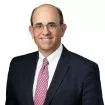The Ninth Circuit Court of Appeals recently granted a petition for interlocutory appeal filed by the defendants in In Re: Volkswagen "Clean Diesel" Marketing, Sales Practices, and Product Liability Litigation,1 a securities fraud class action currently pending in the United States District Court for the Northern District of California. The appeal seeks a determination as to whether plaintiffs alleging securities fraud based on omissions tied to affirmative statements are entitled to a presumption of reliance. In Re: Volkswagen, and the potential implications of the Ninth Circuit's decision, are discussed further below.
Background
To succeed on a securities fraud claim brought under Section 10(b) of the Exchange Act and SEC Rule 10b-5, plaintiffs must establish: (1) the defendant made a material misrepresentation or omission; (2) with scienter; (3) a connection between the misrepresentation or omission and the purchase or sale of a security; (4) reliance upon the misrepresentation or omission; (5) economic loss; and (6) loss causation. The Supreme Court has characterized reliance as an "essential element" of securities fraud claims. Generally, liability attaches to affirmative statements, and omissions are actionable only if the defendant is under a duty to disclose.
In Affiliated Ute Citizens of Utah v. United States (1972),2 the Supreme Court created an exception to the reliance requirement in the context of a fraudulent omission. In that case, members of an Indian Tribe brought claims under Rule 10b-5(a) and (c), alleging bank employees induced them to sell tribal securities that they then resold on a secondary market at much higher prices than they acquired them for. The bank employees did not disclose this to the tribe members. Under those facts, the Court held "positive proof of reliance is not a prerequisite to recovery," and applied a presumption of reliance, reasoning that the "obligation to disclose and th[e] withholding of a material fact establish[ed] the requisite element of causation."
Following the Supreme Court's 1972 decision, there has been a lack of clarity or consistency in the application of the Affiliated Ute presumption and the Affiliated Ute presumption seemed to diminish in importance following the Court's adoption of the Basic presumption of reliance in 1988.3
In Re: Volkswagen "Clean Diesel" Marketing, Sales Practices, and Products Liability Litigation
In 2016, bondholders filed suit against Volkswagen AG, Volkswagen Group of America, Inc., Volkswagen Group of America Finance LLC and former executives of those entities (collectively, "Volkswagen") alleging Volkswagen made materially misleading statements in violation of Section 10(b) and Rule 10b-5(b).
Plaintiffs allege Volkswagen, on three occasions in 2014 and 2015, issued bonds to qualified institutional buyers through Rule 144A private placements. Lead plaintiff, a public pension fund, alleges it purchased bonds pursuant to the terms of an Offering Memorandum. The Offering Memorandum contains statements about both R&D priorities, such as "Volkswagen's top priority for research and development in [recent years has been] to develop engines and drivetrain concepts to reduce emissions," and regulatory risks, like "Volkswagen's vehicles must comply with increasingly stringent requirements concerning emissions." Plaintiffs claim these statements were materially misleading because Volkswagen allegedly failed to disclose that it was using a "defeat device" in many of the vehicles it sold, which enabled it to deceptively pass emission tests and sell vehicles that emitted certain pollutants at levels up to 40 times the legal limit. They claimed to have suffered losses when the bonds decreased in value after regulators publicly accused Volkswagen of using the defeat devices.
Bondholders I4
Volkswagen moved to dismiss the original Complaint. The district court limited plaintiffs' claims to the R&D priority and regulatory risk statements in the Offering Memorandum, excluding claims based on statements about financial statements appended to the Offering Memorandum, but it rejected Volkswagen's contention that plaintiffs failed to plead reliance. The court held Affiliated Ute's presumption of reliance applied because plaintiffs' case "can be characterized as one that primarily alleges omissions," and identified the omission of the defeat device as the "heart of the case." It further explained plaintiffs' allegations regarding affirmative misrepresentations were "necessary" to "frame the omission as misleading" because "Section 10(b) does not create an affirmative duty to disclose all material information."
Bondholders II5
Plaintiffs subsequently filed a First Amended Complaint in 2017, which Volkswagen similarly moved to dismiss. After considering Ninth and Second Circuit precedent, the district court reversed its holding in Bondholders I and concluded plaintiffs could not rely on the Affiliated Ute presumption to plead reliance. It reasoned plaintiffs either "relied on the R&D and regulatory-risk statements in purchasing . . . bonds or they did not," and if they did not, "they should not be able to overcome this shortfall by characterizing their claims as primarily alleging omissions" because the rationale behind the Affiliated Ute presumption applies to instances where "no positive statements exist [making] reliance as a practical matter [] impossible to prove." Accordingly, the district court granted dismissal without prejudice.
Bondholders III6
Plaintiffs filed a Second Amended Complaint in 2018. Volkswagen again moved to dismiss, but the court denied the motion and allowed the case to proceed. It found that plaintiffs plausibly alleged reliance "directly on the statements at issue in the Offering Memorandum." After characterizing Ninth Circuit precedent discussing Affiliated Ute as "somewhat confusing," the court explained the question of whether the presumption applies is "ultimately not one that needs to be answered at this stage in the litigation," but noted it would need to be "resolved in considering class certification."
Order Denying Summary Judgment7
After the parties completed discovery, Volkswagen moved for summary judgment. It argued plaintiffs could not establish direct reliance because their investment manager admitted during a deposition that he did not review the Offering Memorandum before he purchased the bonds. Volkswagen contended that plaintiffs were therefore unable to prove the investment manager would have decided against purchasing the bonds if the defeat devices were disclosed in the Offering Memorandum.
The Court disagreed and "backtrack[ed] from" its ruling in Bondholders II where it held the Affiliated Ute presumption did not apply. Upon further consideration of Ninth Circuit precedent, it decided the Affiliated Ute presumption does apply, reasoning that the case is "best characterized" as "primarily a nondisclosure case" because the "heart of the case" is Volkswagen's omission regarding the defeat devices in the Offering Memorandum. It stated the "affirmative statements" in the Offering Memorandum are "tethered to the omission," and explained that even if Volkswagen's evidence demonstrates plaintiffs' investment manager did not read the Offering Memorandum prior to purchasing the bonds, "that evidence alone is insufficient to establish . . . that [he] would not have attached significance to the omitted facts" about Volkswagen's defeat devices.
Plaintiffs subsequently moved for class certification, relying on Affiliated Ute's presumption of reliance. Volkswagen then moved for leave to appeal the Order denying summary judgment, which the Court granted.
Volkswagen's Petition for Interlocutory Appeal
Volkswagen presented two issues in its petition: whether the Affiliated Ute presumption of reliance (1) "can apply to a case based on affirmative statements allegedly rendered misleading by Defendants' failure to disclose material facts," and (2) "is available when Defendants did not owe Plaintiff an affirmative duty of disclosure arising out of a special relationship of trust and confidence."
Volkswagen argued its petition should be granted for two reasons. At the outset, it claimed there were substantial grounds for differing opinions as to both issues. As to the first issue, Volkswagen insisted (1) "most courts" apply the Affiliated Ute presumption only where there is no affirmative statement alleged to have been misleading; (2) decisions from other districts and circuits, including some in the Ninth Circuit, hold the presumption should only be applied in instances where plaintiffs cannot allege actual reliance; and (3) the Fifth Circuit held the presumption can only apply to Rule 10(b)-5(a) and (c) claims, which could be based primarily on omissions, but not to 10(b)-5(b) claims that necessarily rest upon affirmative statements. As to the second issue, Volkswagen argued other district and circuit courts held the presumption could not be applied absent a fiduciary or other special relationship such as the one that existed between the parties in Affiliated Ute.
The Ninth Circuit considered Volkswagen's petition, along with two supporting amicus briefs, and plaintiffs' opposition, and granted the petition.
Conclusion
The Ninth Circuit has an opportunity to clarify the applicability of the Affiliated Ute presumption in the context of alleged omissions. A decision upholding the Order may result in increased securities fraud class actions and impair the "reliance" element required in these cases. If the appeal is unsuccessful, plaintiffs then may attempt to apply the Affiliated Ute presumption to a wider array of Rule 10(b)-5 claims, which may make it easier to survive dispositive motions as they would no longer need to affirmatively demonstrate a nexus between allegedly misleading statements and economic loss.
Footnotes
1 Case No. 20-80026 (9th Cir. 2020).
2 406 U.S. 128 (1972).
3 To obtain the presumption of reliance, plaintiffs must show (1) defendants' misstatements were publicly known; (2) their stock traded in an efficient market; and (3) they purchased the shares at market price after the misstatements were made but before the truth was revealed. Basic Inc. v. Levinson, 485 U.S. 224 (1988).
4 MDL No. 2672 CRB (JSC), 2017 WL 3058563 (N.D. Cal. July 19, 2017).
[5 MDL No. 2672 CRB (JSC), 2018 WL 1142884 (N.D. Cal. Mar. 2, 2018).
6 328 F.Supp.3d 963 (N.D. Cal. Sept. 7, 2018).
7 MDL No. 2672 CRB (JSC), 2019 WL 4727338 (N.D. Cal. Sept. 26, 2019).
Originally published 17 April 2020
The content of this article is intended to provide a general guide to the subject matter. Specialist advice should be sought about your specific circumstances.




